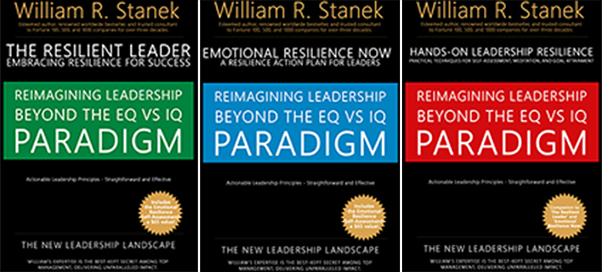

Mindful Living
Discover how mindfulness can enrich your daily life. Whether you're new to the practice or deepening your journey, these insights from William and Hui Cha Stanek provide guidance on living with awareness, purpose, and connection.

Transform your life with practical wisdom. Discover William Stanek's 'Living Well' series—your guide to a balanced and fulfilling life.
Discover William Stanek's Exclusive Art Collection
Explore and purchase the stunning art featured on this site. Own a piece of William Stanek's unique and captivating artwork today!
(May 18, 2025) Mindful Parenting Through Difficult Times: The Stanek Blueprint for Guiding Your Family with Calm and Compassion
Parenting is never easy, but it becomes particularly challenging during times of crisis—whether it’s a military deployment, a health issue, or any other significant adversity. For Hui Cha and me, raising our family amidst the ups and downs of life required not only strength and resilience but also a deep commitment to mindfulness. We learned that by staying grounded and compassionate, even in the hardest times, we could guide our children through difficulties with love and understanding, helping them develop the resilience they would need in their own lives.
Mindful parenting isn’t about being perfect; it’s about being present, leading with love, and creating a nurturing environment where your children can thrive, no matter what challenges arise. In this article, we’ll discuss the unique challenges of parenting during crises, share techniques for staying grounded and compassionate, and offer practical tips for creating a supportive, mindful home environment during tough times. Drawing from our own experiences, we hope to show that mindful parenting, even in the face of adversity, can instill strength, compassion, and resilience in both parents and children.
The Challenges of Parenting During Crises: A Mindful Approach
Parenting during difficult times brings a host of unique challenges. Whether you’re dealing with the stress of a military deployment, the uncertainty of a health crisis, or the strain of personal or professional hardships, these situations can test your patience, your emotional resilience, and your ability to provide stability for your children. For us, the key to navigating these challenges was mindfulness—a practice that allowed us to stay present, manage our own emotions, and respond to our children’s needs with compassion and clarity.
Navigating the Storm: The Importance of Presence
During crises, it’s easy to become overwhelmed by fear, anxiety, and stress. These emotions can make it difficult to be fully present with your children, who often need your attention and reassurance more than ever during tough times. Mindfulness helped us stay grounded, allowing us to focus on the present moment rather than becoming consumed by worries about the future. By staying present, we could provide our children with the stability and support they needed, even when the world around us felt uncertain.
Leading with Love and Resilience
Mindful parenting during difficult times also means leading with love and resilience. It’s about showing your children that, even in the face of adversity, they are loved and supported. For us, this meant being intentional about how we communicated with our children, ensuring that they felt heard and understood, and modeling resilience by demonstrating how to handle challenges with grace and courage.
Techniques for Staying Grounded and Compassionate During Difficult Times
Maintaining a mindful approach to parenting during crises requires practical strategies to stay grounded and compassionate. Here are some techniques that helped us navigate difficult situations while keeping our family strong and united:
-
Mindful Communication: Listening and Responding with Compassion
- Communication is crucial during times of crisis. Mindful communication involves being fully present when talking with your children, listening to their concerns, and responding with empathy and understanding.
- How to Practice Mindful Communication:
- When your child expresses worries or fears, take a moment to pause and fully focus on them. Make eye contact, put away distractions, and listen to what they’re saying without interrupting.
- Acknowledge their feelings and let them know that it’s okay to feel scared or upset. Use phrases like “I understand that this is difficult for you” or “It’s okay to feel what you’re feeling.”
- Respond with calmness and reassurance, offering comfort and support. If you don’t have all the answers, it’s okay to admit that while also expressing your confidence in facing the challenge together as a family.
-
Emotional Regulation: Managing Your Own Stress and Emotions
- As a parent, your ability to manage your own stress and emotions directly impacts your children. Practicing mindfulness can help you regulate your emotions, preventing them from spilling over into your interactions with your children.
- How to Practice Emotional Regulation:
- Start by recognizing when you’re feeling overwhelmed, stressed, or angry. Take a few deep breaths to center yourself before reacting.
- Use mindfulness techniques like breath awareness or body scanning to calm your nervous system and bring your attention back to the present moment.
- If you need a break to collect yourself, it’s okay to take a moment alone to breathe, meditate, or simply sit in silence. By managing your own emotions, you create a calmer, more supportive environment for your children.
-
Mindful Reassurance: Providing Stability in Uncertain Times
- During crises, children often look to their parents for reassurance and stability. Mindful reassurance involves being intentional about the support you offer, helping your children feel safe and secure even when things are uncertain.
- How to Provide Mindful Reassurance:
- Create a routine or daily rituals that your children can rely on, even in the midst of chaos. This could be as simple as a regular bedtime routine, a daily family meal, or a nightly check-in where everyone shares how they’re feeling.
- Offer consistent reassurance by reminding your children that you’re there for them, no matter what. Use comforting language and physical touch, like hugs or holding hands, to reinforce your support.
- Be honest with your children about the situation, but in an age-appropriate way. Focus on what you can control and the steps you’re taking to keep them safe, helping them feel more secure.
-
Modeling Resilience: Showing Strength Through Mindful Actions
- Children learn resilience by observing how their parents handle challenges. By modeling resilience through mindful actions, you can teach your children how to face adversity with courage and grace.
- How to Model Resilience:
- Demonstrate how to stay calm under pressure by using mindfulness techniques in front of your children. For example, if you’re feeling stressed, let them see you take deep breaths or practice meditation.
- Share stories of times when you’ve faced challenges and how you overcame them, highlighting the importance of perseverance and maintaining a positive outlook.
- Encourage your children to express their emotions and to find healthy ways to cope, such as through creative activities, physical exercise, or talking about their feelings.
Personal Story: How the Staneks Used Mindfulness to Stay Strong During Adversity
One of the most challenging periods in our lives came during a time when I was deployed overseas, leaving Hui Cha to manage the household and care for our children on her own. The stress and uncertainty of the situation were immense, not only for me but also for our entire family. Our children were young and had difficulty understanding why I had to be away for so long, and Hui Cha faced the daily pressures of balancing work, parenting, and the emotional strain of being separated from me.
During this time, mindfulness became our lifeline. Hui Cha and I made a conscious effort to stay connected, even from a distance, by maintaining regular communication and sharing our thoughts and feelings openly. She practiced mindfulness with the children, using techniques like breath awareness and emotional check-ins to help them cope with their feelings of fear and uncertainty. Every evening, she would sit with them and talk about their day, offering reassurance and comfort while also encouraging them to express their emotions.
One particular moment stands out in my memory. It was a difficult day, and Hui Cha was feeling overwhelmed by the responsibilities she was carrying. She told me later that she took a moment to sit quietly in the bedroom, practicing deep breathing and reminding herself to stay present. When she returned to the children, she was calm and composed, ready to provide them with the support they needed.
This experience taught us the power of mindful parenting in keeping our family strong and united during adversity. By staying present, managing our emotions, and leading with love, we were able to navigate one of the most challenging times in our lives, emerging from it with a deeper sense of connection and resilience as a family.
Practical Tips for Creating a Supportive, Mindful Home Environment
Creating a supportive, mindful home environment is essential for helping your family navigate difficult times with resilience and compassion. Here are some practical tips, inspired by our commitment to fostering a nurturing space for our children:
-
Establish a Daily Mindfulness Practice:
- Encourage your family to participate in a daily mindfulness practice, such as morning meditation, mindful breathing exercises, or a gratitude journal. This routine can help everyone stay grounded and focused, even during challenging times.
-
Create Safe Spaces for Emotional Expression:
- Designate areas in your home where your children can express their emotions freely, whether through talking, drawing, or other creative activities. Let them know that it’s okay to feel scared, sad, or angry and that you’re there to support them.
-
Maintain Routines and Rituals:
- Routines and rituals provide stability and a sense of normalcy during times of crisis. Establish consistent daily routines that your children can rely on, such as regular mealtimes, bedtime rituals, or family check-ins.
-
Practice Mindful Listening:
- Make an effort to listen to your children with full attention, without distractions. Allow them to share their thoughts and feelings, and respond with empathy and understanding. Mindful listening can help strengthen your connection with your children and reassure them that they’re heard and valued.
-
Focus on Connection Over Perfection:
- During difficult times, it’s easy to get caught up in the pressures of trying to do everything perfectly. Instead, focus on maintaining strong connections with your children and creating a supportive environment where they feel loved and secure.
Conclusion: The Power of Mindful Parenting in Difficult Times
For Hui Cha and me, mindful parenting became the foundation of our approach to guiding our family through difficult times. We learned that by staying present, leading with love, and creating a supportive environment, we could help our children develop the resilience and strength they needed to navigate life’s challenges.
Mindful parenting isn’t about being perfect; it’s about being there for your children, offering them stability and compassion, even when times are tough. By integrating mindfulness into your parenting practices, you can create a nurturing space where your children feel safe, supported, and loved, no matter what challenges arise.
We encourage you to explore the mindfulness techniques we’ve shared and to apply them in your own family during times of adversity. By doing so, you can instill in your children the values of strength, compassion, and resilience, helping them grow into confident, empathetic individuals who can face the world with courage and grace.

Join William at the crossroads of technology, business, and leadership, where true influence isn't about titles - it's about inspiring action, driving change, and guiding others with integrity. Discover how authentic leadership can transform not just careers, but entire industries.
Bring Inspiration Home
Enhance your space with William Stanek's evocative art. Each piece is crafted to inspire and uplift your everyday life.

Support The Lights of Paris by Robert Stanek, William Stanek's pen name! Through vivid historical detail and deeply moving character stories, Robert takes readers on an unforgettable journey through one of history’s most transformative times.















